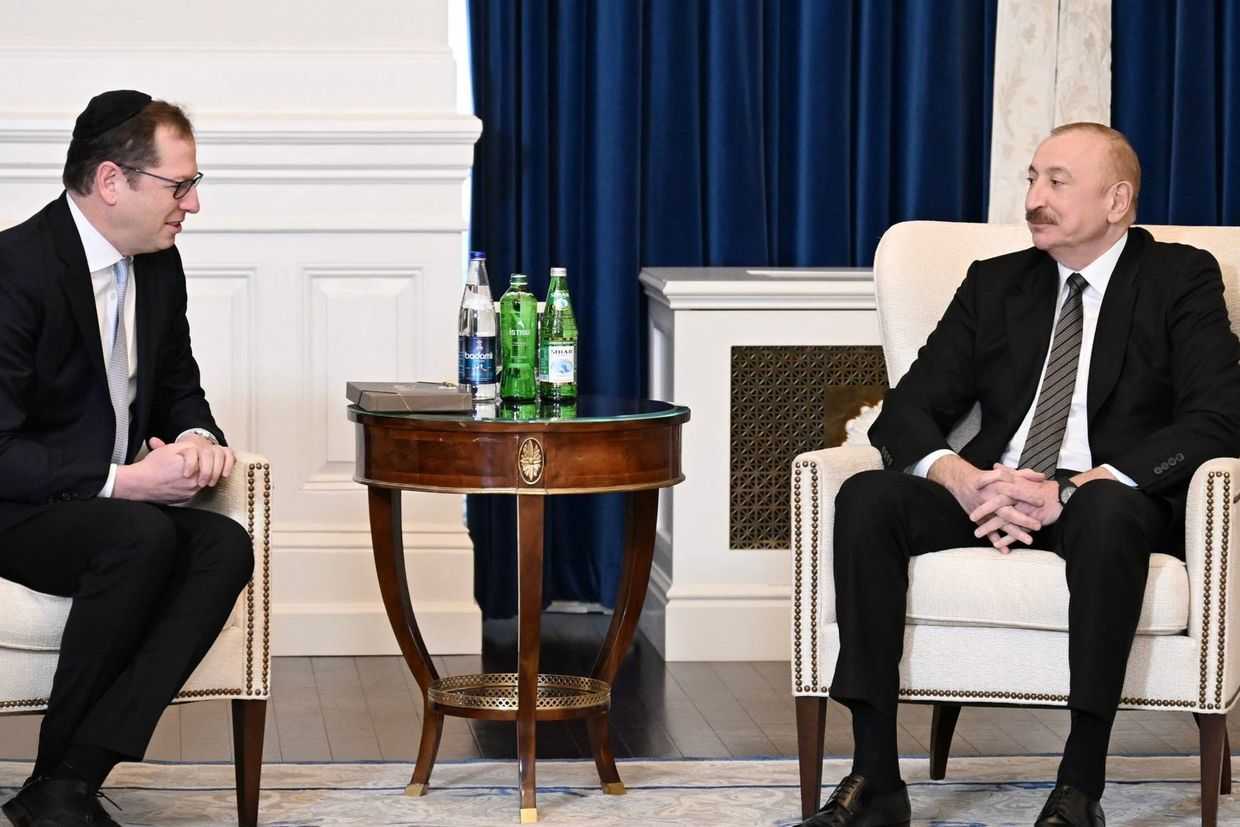
Since being chosen to host the UN’s annual climate summit last year, the oil-rich country has provoked concern among observers and activists over potential conflicts of interest. As details emerge of Azerbaijan’s attempts to use COP29 to promote its oil and gas industries, some worry the legitimacy of the conference could be at risk.
On the walk into the sprawling tent complex that hosts COP29, the UN flag whips in the wind next to another featuring the logo of SOCAR — the state-run oil company of Azerbaijan.
This year marks the second in a row that the UN climate summit has taken place in a country dependent on fossil fuels, after COP28 was held in Dubai. And Azerbaijan appears to be borrowing from the UAE’s playbook.
In the year leading up to COP28, conference President Sultan Ahmed Al-Jaber, who leads the UAE’s state-run oil company, sought out $100 billion in fossil fuel deals — a fivefold increase from the previous year — according to an investigation by Global Witness.
Despite emphasising its intentions to take the role of COP29 host seriously, Azerbaijan has similarly shown little desire to transition away from fossil fuels, which account for over 90% of its export revenues.
A week before the conference began, climate watchdog Global Witness impersonated an energy investor and captured COP29 CEO Elnur Soltanov — a former SOCAR executive — on hidden camera promoting fossil fuel deals.
Likewise, COP29 President Mukhtar Babayev — another SOCAR veteran — invited over 132 executives and staff from fossil fuel companies as his personal guests to the conference, according to reporting from The Guardian.
‘It’s not just lobbyists nibbling around the edges’, Lela Stanley, the head of Global Witness’s fossil fuel investigations team, told OC Media. ‘This really kind of goes to the heart of the conference process itself’.
The strategy appears to be yielding results.
In a parallel investigation, Global Witness found that Azerbaijan had closed $8 billion in fossil fuel deals in the year leading up to COP29 — three times more than the year before.
Last week, SOCAR used the conference as a venue to announce at least two more major deals: a cooperation agreement with Italian gas giant Italgas and a partnership with the United Arab Emirates-based firm Intelligrid to build a gas grid management system worth $480 million.
In a statement to OC Media, a member of Azerbaijan’s delegation, who wished to remain anonymous, said that SOCAR’s promotion of fossil fuel deals at COP29 reflects the ‘complexity’ of the country’s energy transition.
‘Azerbaijan recognises the need to balance economic interests with a sustainable future, and any efforts to highlight fossil fuel initiatives are paired with a strong commitment to energy investments, including solar, wind, and hydroelectric’, the delegate said.
Claudio Motta, head of international media relations at Italgas, told OC Media that COP29 is ‘the most appropriate platform to formalise the agreement and highlight its significance’.
Azerbaijan’s authoritarian President Ilham Aliyev, whose family has ruled the country since 1993, even used the COP29 podium to emphasise the importance of fossil fuels, which he has repeatedly called a ‘gift from God’.
In direct contrast to COP’s aim of facilitating a green transition, the conference has become a place where fossil fuel representatives come to meet and strike deals, Asad Rehman, the executive director of the social justice nonprofit War on Want, told OC Media.
‘You can do it face to face, so that’s why corporate lobbyists love this kind of negotiation’, Rehman said. ‘For them, the trade fair is the climate negotiations’.
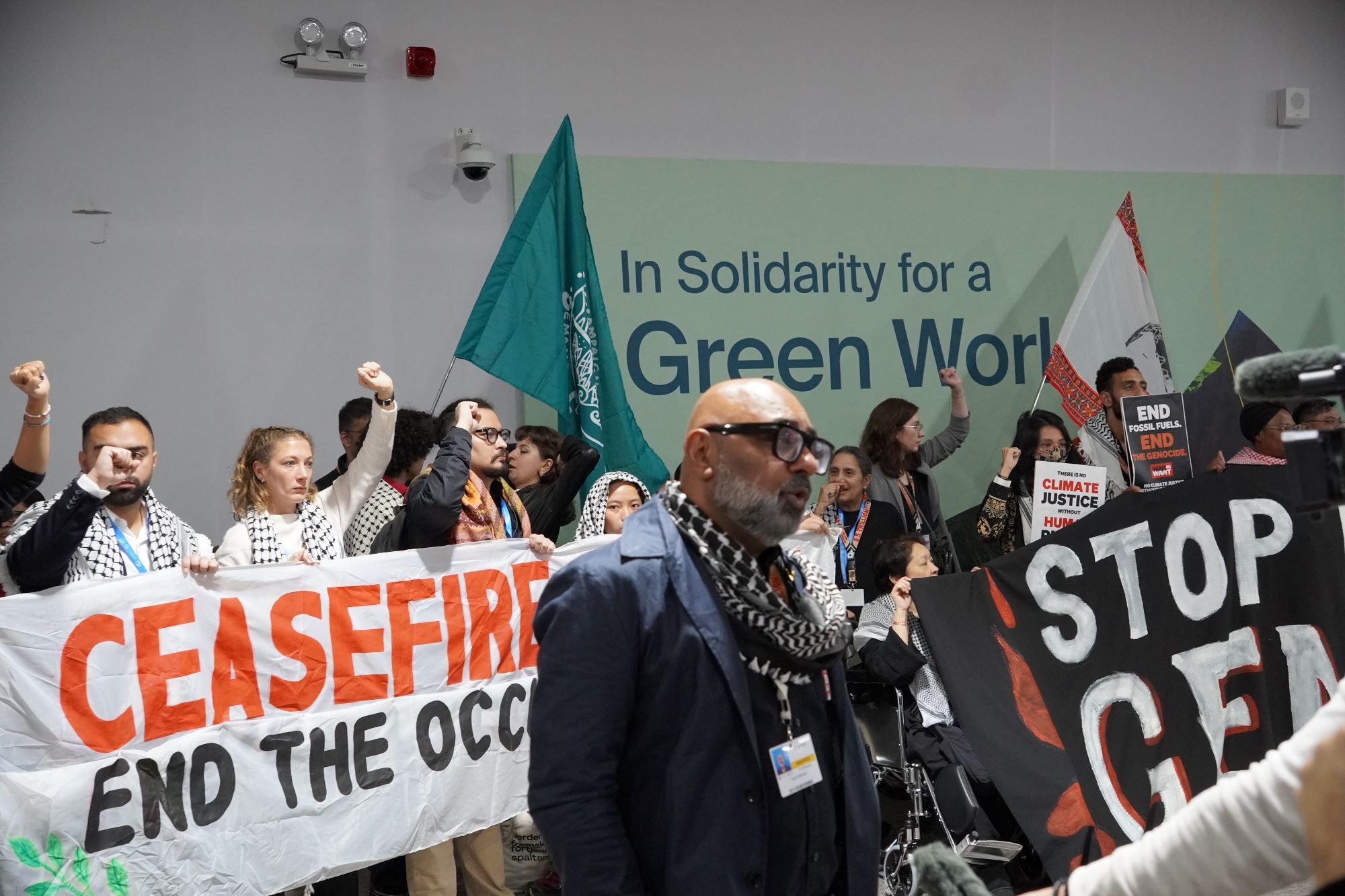
Corruption in the Green Zone
In an event hall across the street from the complex where delegates meet, fossil fuel companies and their enablers advertise freely in an area called the Green Zone. This domain is open to the general public and administered exclusively by Azerbaijan.
In a report released last month, Transparency International raised concerns about corruption among Green Zone sponsors, which include a number of corporate entities tied directly to the ruling Aliyev family.
These include SOCAR Green, a renewable division of the state-run oil company which was only set up after Azerbaijan was chosen to host COP29, and PASHA Holdings, a conglomerate owned by the family of first lady and vice president Mehriban Aliyeva that operates in industries from banking to real estate and retail.
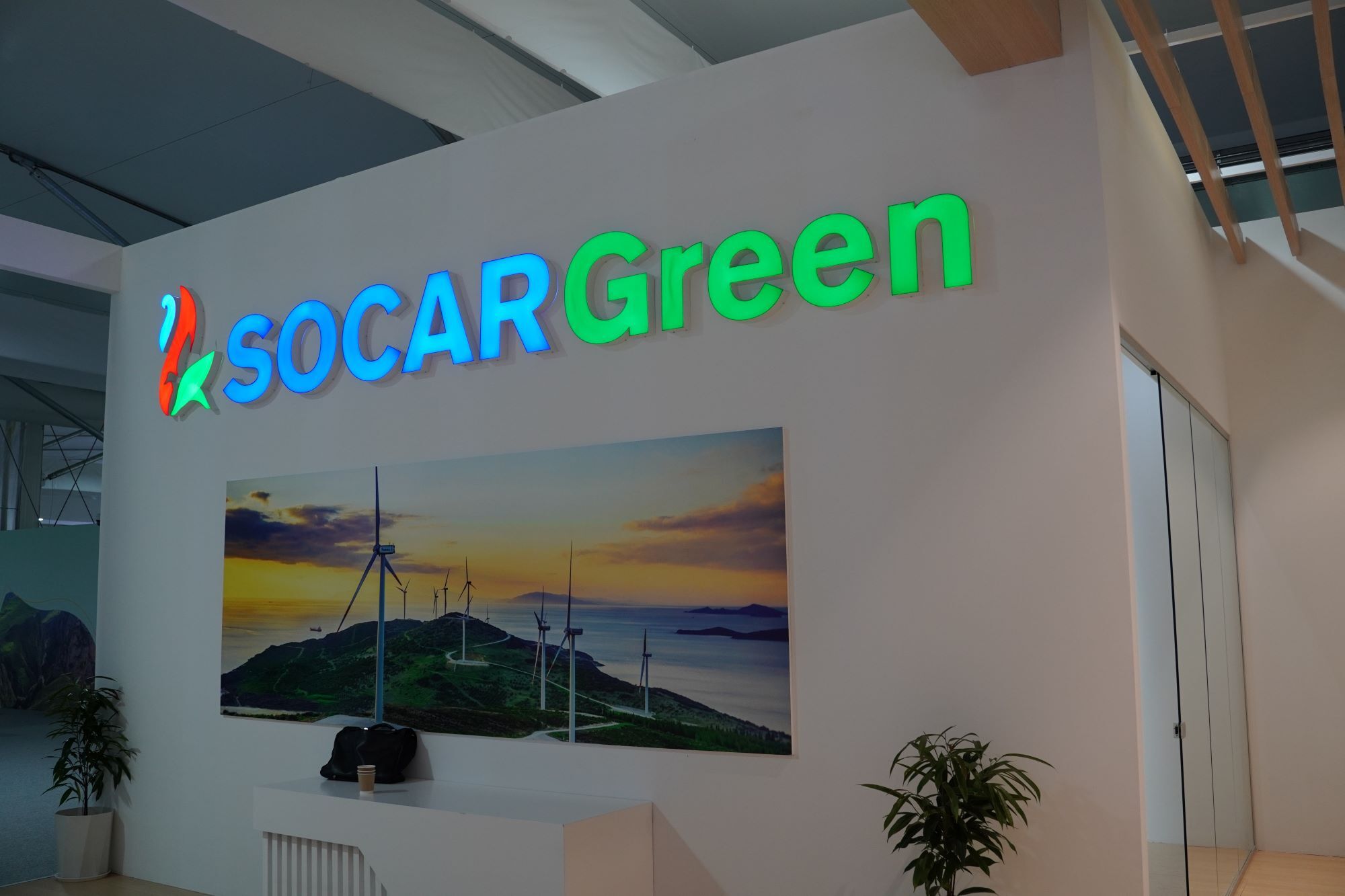
‘We know the country’s profile in terms of corruption’, Brice Bohmer, the head of Transparency International’s climate and environment team, told OC Media. ‘We know the regime’s profile as well in terms of being authoritarian, and serving the interest of the family, rather than of the country, and not even talking about the planet’.
The report also raised concerns that the conference could be used to boost Azerbaijan’s reputation, after the country has faced international condemnation for its repression of civil society and alleged ethnic cleansing of Armenians in Nagorno-Karabakh.
A pavilion in the Green Zone operated by Azerbaijani energy grid operator Azerishiq displays a glowing topographical map presenting opportunities for renewable energy development in Nagorno-Karabakh. The stand highlights the region as a hub for Azerbaijan’s green transition, while ignoring the 100,000 Nagorno-Karabakh Armenians who were displaced following Azerbaijan’s large-scale military offensive last year.
‘Azerbaijan [is] using the COP for reputational laundry’, Bohmer said, citing the country’s decision to spend nearly $5 million on public relations before the conference and its extensive use of bot accounts to silence online criticism.
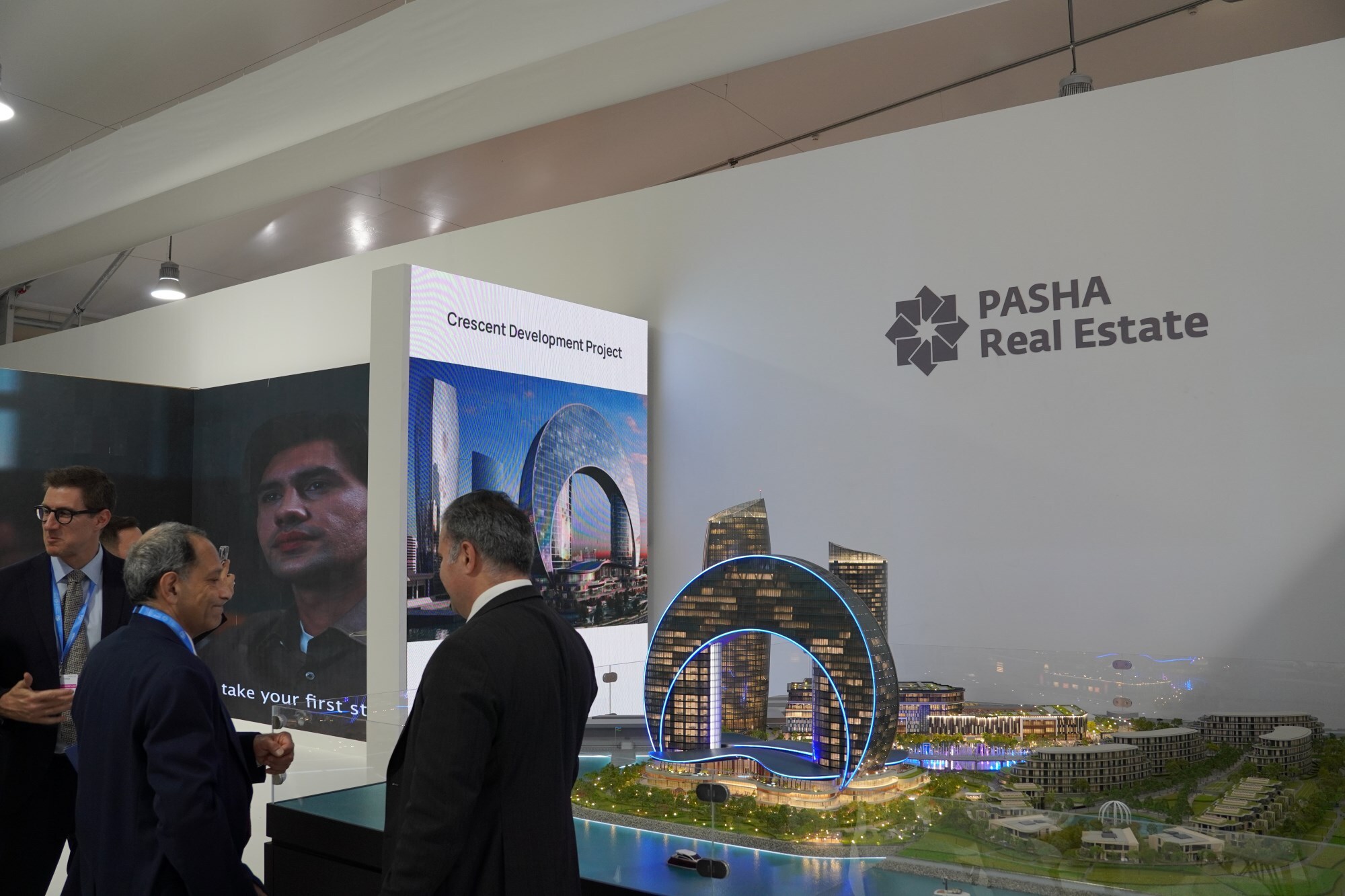
Alongside the Green Zone’s government-connected sponsors, other companies with dubious environmental credentials do their best to present themselves as models of sustainability.
In one corner, German fossil fuel giant Uniper advertises itself as ‘the beating heart of change’. In another, multinational consultancy McKinsey — which faced an employee rebellion in 2021 for advising 43 of the world’s 100 most environmentally damaging companies — urges visitors to ‘lead the change’.
Some of the most outlandish pavilions are operated by entities connected to Saudi Arabia, including one advertising green hydrogen generation at NEOM — the kingdom’s $500 billion futuristic line city.
COP compromised
Yet many activists complain that the outsized influence of fossil fuel interests also extends into the UN-administered Blue Zone — the central area of the conference where negotiations take place.
Despite attendees needing UN accreditation to attend or present in the Blue Zone, many of the same dynamics appear. The International Association of Employers, a corporate advocacy group, offers to teach visitors ‘green skills’, while the Gas Exporting Countries Forum advertises natural gas as ‘the cleanest hydrocarbon’.
Once again, many of the most elaborate Blue Zone pavilions — featuring soaring arches, flashing LED displays, and full-service coffee and tea bars — belong to petrostates including Saudi Arabia, Qatar, and the UAE.
In addition to the main negotiations, the conference features a number of ‘side events’, which are hosted by accredited participants and focus on topics of their choosing.
An investigation from climate watchdog Desmog found that major fossil fuel companies, including Chevron and TotalEnergies, paid tens of thousands of dollars to host events and private lunches in the Blue Zone through an accredited lobbying group called the International Emissions Trading Association.
According to Rehman, fossil fuel companies often make their influence felt by focusing these events on seemingly innocuous topics that cater to their interests. He notes that one of the most popular is ‘carbon capture’ technology, which syphons emissions out of carbon-burning infrastructure and stores them underground.
The technology has been widely panned by climate activists, who say it is not effective at scale and provides a smoke screen for fossil fuel companies seeking to burnish their environmental credentials without transitioning toward clean energy.
The sponsors of one carbon capture event on Tuesday include the Canadian International Carbon Capture and Storage Knowledge Centre, which was established in 2016 by Australian coal giant BHP and Canadian utility Saskpower, and the University of Texas, Austin in the United States, which leases over 2 million acres of land in West Texas to oil and gas companies.
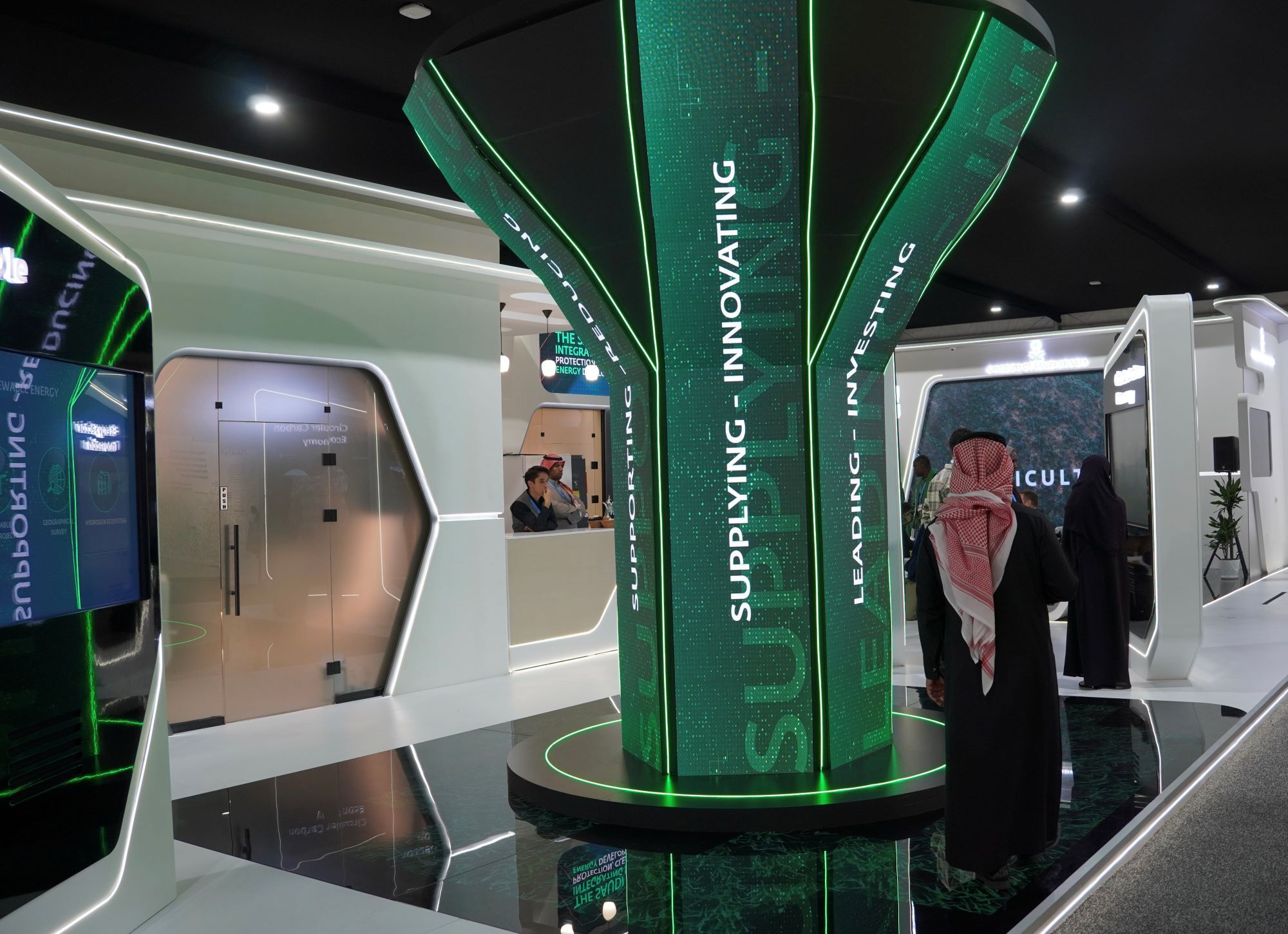
Bohmer told OC Media that he sees the conflicts of interest at this year’s conference as evidence of a ‘structural problem’ within the COP process.
‘The way the COPs are organised make it possible for those types of countries or corrupt regimes to access the COP presidency and exert some influence over the way the negotiations are being organised and handled,’ Bohmer said.
In response, a number of activist organisations have banded together in a coalition called Kick Big Polluters Out, which focuses on reducing the role of fossil fuel interests in global climate diplomacy.
For Rehman, whose organisation is a member, a good first step is to mandate that COP hosts and participants disclose their identities and any business deals they may be pursuing at the conference.
‘We want transparency’, Rehman said. ‘Which of the people are here for civil society, and which of the people are here for economic and business and corporate interests?’





